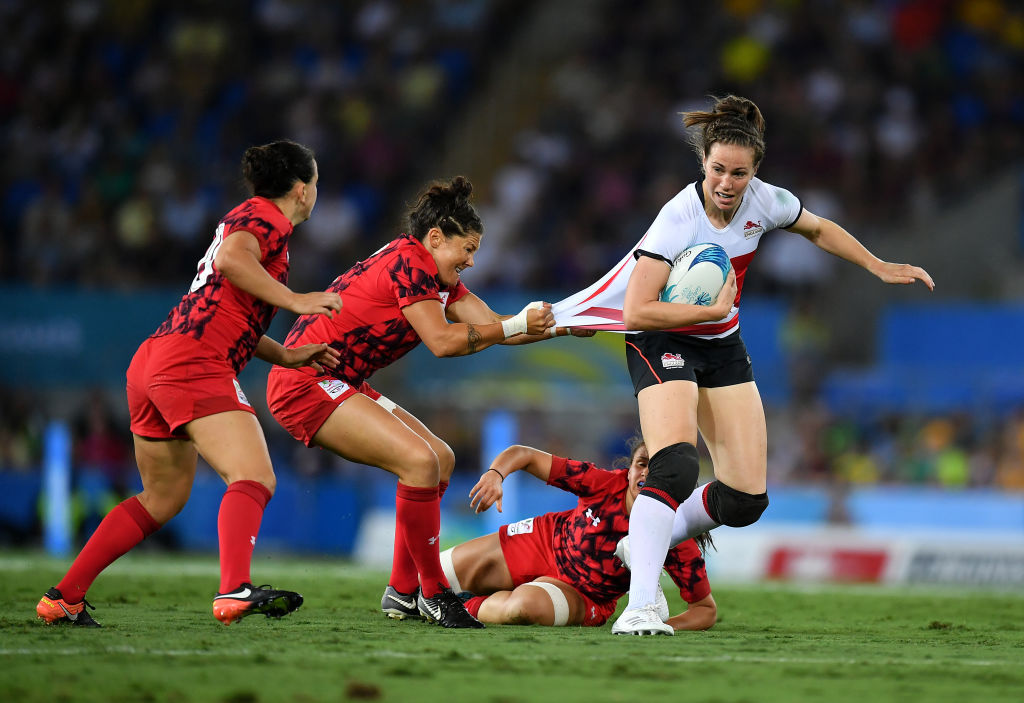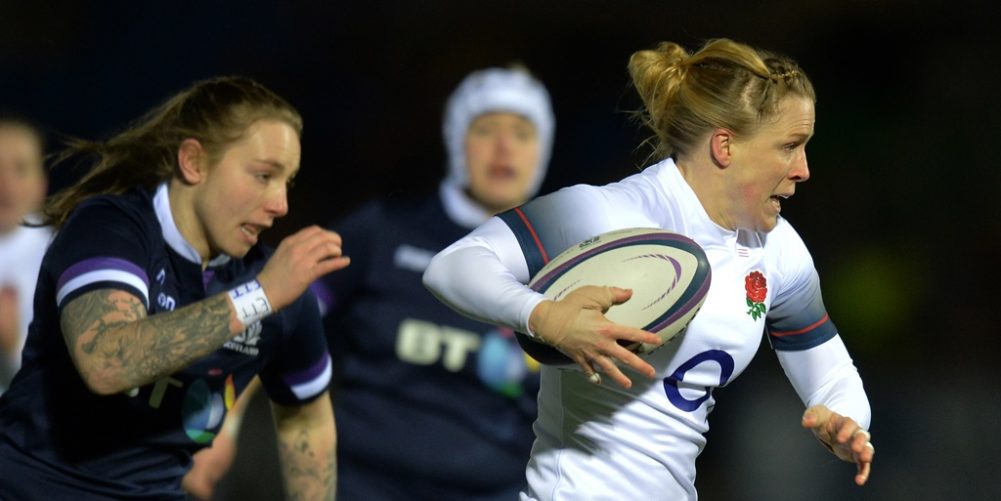By Catherine Spencer
San Francisco, home of the Golden Gate Bridge and this year’s Sevens World Cup, was not so Golden for our Red Roses with a lowly ninth-place finish after a defeat in the first round to Ireland.
Their Challenge trophy victory was the best they could obtain in the new knockout format and they duly delivered that.
Opinion is divided on the knock-out format of the World Cup but it must be remembered that a better performance throughout the World Series would have earned England a higher place seeding for the tournament and consequently an easier first round fixture.
In April, England travelled to the Gold Coast to compete in the Commonwealth Games and returned with a bronze medal, a questionable success. Meanwhile, England lost out to France in the Six Nations earlier this year and 15-a-side players are back to their day jobs with no professional contract.
The 7s v 15s debate is simply not going away because in business terms we do not seem to be getting a return on investment. Resources have been ploughed into the Women’s 7s game but what do we have for that? A Commonwealth bronze and a 9th-place finish at the World Cup.
Canada, Australia and New Zealand have long been financially supporting the shorter form of the game but times are changing. Australia are now bucking the trend and frantically developing the 15s game; NZ have finally announced contracts for 15s players and although the salaries are not huge they will certainly benefit from increased time to train.
USA have announced the appointment of their first full time coach in Rob Cain, and while France have been quiet about their level of investment, I have no doubt that it has been healthy and high audience levels over the Channel have been well documented. England, who’ve been a leader in terms of ‘professional’ support to the women’s 15-a-side game, may start to find themselves slipping back and running through treacle in a bid to stay in the race unless something changes.
The fundamental thing that is wrong about this debate is the word ‘or’ in 7s or 15s.
This has in part been due to Nigel Melville, RFU director of professional rugby, describing the women’s game as cyclical – his explanation of the swinging pendulum of focus and associated funding between the two codes. The RFU have chosen for the women’s game to be cyclical but it can’t be any longer.

The first time I really understood the impact of 7s on 15s was during the 2009 Six Nations. I was the first England captain to lead the team to defeat against Wales. We had been playing against each other for 21 years and the Red Roses had on every occasion, until that fateful day, been victorious.
The team had been decimated of players to allow the formation of a 7’s squad to compete at the 2009 7’s World Cup. The disruption caused by changing team personnel was a major contributing factor to the result. We did go on to win the Championship but this deafened the alarm bells that had started to ring.
That year was a tricky one as captain, trying to manage the changing dynamics within a squad with players taken out to experience a different environment only to return to the fold with entirely different expectations. And this movement of players like chess pawns has continued ever since.
The likes of world class players such as Emily Scarratt, Alex Mathews, Natasha Hunt and, until recently, Nolli Waterman swapped from one code to the other. A second place finish in this year’s Six Nations really was down to the inclusion of the oh-so-impressive Nolli. Had she been moved to 7s as per previous years I fear that the final placing would have been lower.
The Olympic draw has been key to this damaging few years. The apparent pot of gold at the end of the Olympic rainbow containing a raft of new players, funding and associated media profile.
The question should not be which is more important – in my opinion that’s easy, it’s 15s because I don’t understand the concept of any rugby game that does not feature at last a couple of decent driving mauls! It should not be about which version of the game the focus for this year is on, nor should it be which will receive contracts for players. Getting paid or not getting paid is an unfair choice for the players involved.
It is difficult to say, in a time when we are witnessing a raft of redundancies at the RFU, but I would suggest that the resources are there to support both forms of the game properly. It is time to even the spread. Allow all of our top stream of elite players to be professional athletes. Allow players to make a fair choice about where they really want to hone their talents. Bring our elite, world class 15-a-side players who have been with 7s back to our much-lauded Tyrells Premiership and allow them to play regular rugby.
I personally don’t see the return on investment of 7s rugby and I am convinced that the 7s Olympic pot of gold is nothing more than fable – but the shortened form of the game is here to stay. If we need to reduce the elite pool in order to provide professional contracts for both forms of the game then do it. But central contracts are to plug a gap; it is the clubs that provide the long-term answer.
The ideal solution is for players to be funded by clubs. And what will be the ROI? A wider audience, increased membership, attraction of new sponsors – they will come if we show them what we have. More players supported professionally will increase the elite player pool and will lift standards and there may be a chance that we can not just cling on to the coat tails of New Zealand but leave them in our wake.
For me it is not about the Olympic dream; it is about the pot of gold at the end of the 15-a-side rainbow – the one that is more than just fable.























